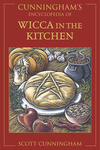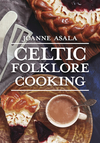Mussel and Onion Stew

If onion's skin is very thin, a mild winter's coming in; if onion's skin is thick and tough, the coming winter's cold and rough (Scottish saying).
This stew is perfect for cool autumn days, while reflecting on the harvest festivals and the coming changes of the seasons and the wheel of the year.
- 5 pints mussels
- 2/3 cup white wine
- 6 small onions, sliced
- 1/4 cup butter
- 4 shallots, chopped
- 6 cloves of garlic
- 2 carrots, chopped
- 4 potatoes
- Fresh parsley, thyme, and bay leaf, tied together
- Chopped parsley
- Black pepper
Scrub and "debeard" the mussels. Discard any that remain open after tapping; shellfish should be alive before cooking. Place them in a large saucepan with the white wine. Cook on high heat until the mussels are open. Again, throw away any that remain closed. Remove the mussels; strain the liquid and reserve. In another pan, sauté the onions in butter or olive oil. Add the shallots, garlic, and chopped carrots. Peel and slice the potatoes. Put them in a pan with the herbs, chopped parsley, and reserved liquid from the mussels. Season to taste with pepper. Simmer for about one hour. Shell the mussels and, if desired, save the shells. Take a ladle of the vegetable broth, making sure to include potatoes, and purée in a blender, food processor, or food mill. Add to the rest of the vegetables again and put all the mussels in the pot. Simmer until the mussels are hot. Remove and discard bay leaf. The shells may be added for decoration. Serve with white wine and slices of garlic bread.
Serves 4 to 6.
Excerpted from Celtic Folklore Cooking, by Joann Asala.
About Joanne Asala
Related Products


is subject to certain Terms and Conditions